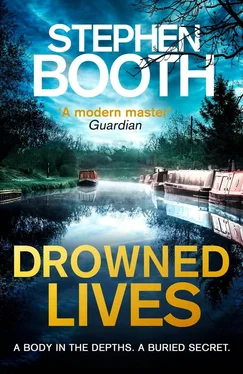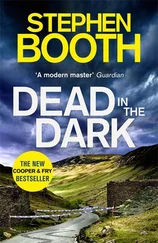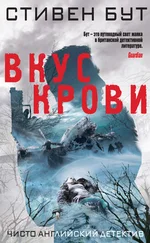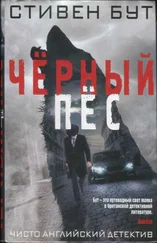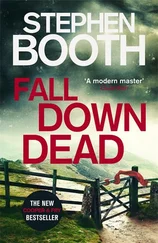‘I still don’t understand what you want me to do,’ I said. The old man turned those weak blue eyes on me, but I hurried on before he could speak. ‘But, look — I have to tell you here and now that I don’t have the time to get embroiled in complicated history projects. My time is fully committed.’
Samuel looked at me sadly as I explained about the dot-com start-up, and its financial implications.
‘It’s going to take all my time and effort to make it a success,’ I said. ‘And that means all my time.’
He nodded as if he understood. ‘Of course you think that now, Christopher. But when you understand everything, you’ll feel quite differently.’
‘I don’t think so,’ I said firmly.
‘I know you will.’
Samuel rapped his stick on the pavement for emphasis as he dropped my arm. But there was no power in the gesture, no real anger. As I watched him go, I felt confident I’d made my position clear. I had no intention of getting involved, and he knew it. I had my own concerns, and my own life to lead.
But fate was about to take hold of my boring life and give it a vigorous shake.
When Samuel Longden walked away towards the taxi rank, he looked like an old man who’d exhausted himself, who’d walked too far and talked too much. And no more than that.
He certainly didn’t look like a man who was about to die.
And now I see a seething of dark water as the sluice gates open at the tail of a lock. A woman stands on the counter of a narrowboat moored to the bank. Her arms rest on the hatch and her rough hands twist and clench as she stares into the gathering dawn.
A pair of Black Country joey boats are waiting to pass into the lock, and a ripe smell hangs on the morning air. The joeys are carrying night soil, smuggling the nauseous substance away from the towns under cover of darkness. Their planks are green with mould, clumps of moss grow on the black-tarred sides, and the gunwales are bent out of shape from repeated impacts on lock sides.
The woman’s own boat is scrubbed and clean, with the name Willow and a registration number smartly painted on the cabin. Inside, the wood is smooth and varnished, carefully scumbled to give the impression of wood grain. An oil lamp hangs on a bracket, its light reflecting from the wood, while lace-edged plates gleam on the brass rails.
At the boatwoman’s foot is a hot stove, its chimney leaking smoke as grey as the light now creeping over the roof of the warehouse beyond the lock. A coal box drawer is pulled open to form a step down into the tiny cabin. The box is almost empty of coal, but there are several tons of it beyond the back wall of the engine hole, where the hold is full of a cargo loaded at the Cannock pits.
A long skirt rustles against the cabin doors, and the woman’s black boots move uneasily on the counter. Below, in the cabin, a small white face turns up towards her and begins to speak, a plaintive sound like the mewing of a cat. The woman shushes it abruptly, the anxiety clear in her voice and the rigidity of her movements.
When the joeys have passed, they leave a wash that sucks the keel of the narrowboat against the bank. The woman continues to stare straight ahead, past the exhaust funnel, along the top planks and the box mast, to the triangular cratch at the stem of the boat, nearly seventy feet away. Her eyes watch the towpath for movement, but there is none.
She turns and looks behind her, where the sky is still dark. The butty lies close to the stern of the motor, deep in the water with several more tons of coal for the power station near Coventry. She can see the water cans on the roof of the back cabin, where two more children are asleep in the claustrophobic warmth. The curved wooden tiller has been tilted upwards, shipped out of use.
As I watch, I know the woman should have been standing in the well of the butty, not on the counter of the motor, which is usually her husband’s place.
Finally, the joeys are safe in the lock, and a boatman hauls on the balance beam to close the tail gate. The dark water heaves and churns again, releasing lumps of debris and blobs of foam that show white and ghostly in the grey light.
And something else is released too, as the massive gate moves slowly away from its recess in the wall of the lock. There’s something darker than the water, and oilier — something that bursts in a small slick on the surface. A metallic smell mingles with the stench of human waste, and the woman’s throat tightens as her hands grip the edge of her shawl.
Then a shape breaks the surface. It rolls and wallows, black and glistening, bobbing like a broken fender. It looks like a lump of rope, but it uncoils into the reality of human limbs and sodden clothes and floating hair.
The light of dawn is still too faint to make out the face that turns in the water, pale and gaping. But the woman knows the truth already. She’s looking at the body of her husband.
‘On the roads this morning, traffic is particularly heavy on the A38 and A5. Watch out for hold-ups at Muckley Corner and the Weeford Roundabout. And the weather for South Staffordshire today is: cold and wet.’
I turned off the radio and pulled on my old waxed jacket, ready to go out. The word was that the Under Sheriff and his bailiffs would begin clearing the tree houses at the third camp near Hilton this morning, no matter how wet the weather. In fact, the rain would be on their side — the protesters would be staying inside, and there would be fewer supporters on hand to hinder the operation.
I had to be there, on the off-chance of getting that crucial human interest story — a pregnant woman manhandled by the bailiffs perhaps, or the notorious Squirrel arrested again. There was also a chance of being on the spot for just the right photograph, one that the nationals would snap up. Some hopes. With my luck, there’d be so much else happening around the world that the protesters would be relegated to a paragraph on page 30. But still, I had to be there.
As I drove away towards Gaia Lane, a figure in a red waterproof and hood stopped on the pavement and waved to me. It was Rachel, out walking old Mrs Norton’s cocker spaniel, Jed. Automatically, I acknowledged her greeting, though she probably wouldn’t even see me through the streaming windows.
Most of the rest of the day I spent tramping about in the rain on the edge of a muddy field, watching very little happen. The bailiffs seemed reluctant to move in, and when they did eventually decide to get on with it, the tree people put up no resistance. The constant drizzle blurred the scene, creating a dismal atmosphere in which there were only shades of grey, no black and white confrontations to provide the striking image I wanted.
Later in the afternoon, a mist began to develop. By then I was chilled through and rain had trickled down the neck of my coat, soaking my collar. The wellingtons I’d brought with me in the boot of the car were caked with clay. I decided to go home and change.
There was a meeting I had to attend that night in the community hall at Boley Park. Although the tree houses and tunnels of the eco-warriors had attracted most publicity, the road scheme had also brought together a consortium of local councils and community groups calling itself the Alliance Against the South Staffordshire Link Road. The Alliance was pursuing a legal challenge against the road, which it hoped to take to the Court of Appeal.
The hall was already crowded by the time I arrived, and I spotted Andrew Hadfield across the room with other members of the trust. The WRG work party had gone home by now, and these were the real activists, dedicated to promoting their cause on every occasion, by whatever means they could.
Читать дальше
